Home>diy>Building & Construction>What Is An Expeditor In Construction


Building & Construction
What Is An Expeditor In Construction
Modified: January 24, 2024
Learn about the important role of an expeditor in building construction projects. Discover their responsibilities and how they ensure smooth project execution.
(Many of the links in this article redirect to a specific reviewed product. Your purchase of these products through affiliate links helps to generate commission for Storables.com, at no extra cost. Learn more)
Introduction
In the fast-paced world of construction, staying organized and keeping projects on track is of utmost importance. This is where an expeditor plays a crucial role. An expeditor, also known as a construction coordinator or project coordinator, is a professional who ensures the smooth flow of operations and coordinates between various stakeholders to keep construction projects on schedule.
In this article, we will explore the definition of an expeditor in construction, their roles and responsibilities, the importance of their role in construction projects, the skills and qualifications required to become an expeditor, the challenges they face, and effective strategies for being a successful expeditor.
An expeditor’s main objective is to streamline the construction process and ensure that everything runs efficiently. They act as a bridge between the project manager, contractors, suppliers, and other team members to facilitate effective communication and coordination. By doing so, they play a vital role in ensuring that projects are completed on time and within budget.
An expeditor is responsible for monitoring project timelines, tracking the progress of various tasks, and alerting the project manager about any potential delays or issues. They are also involved in procurement activities, liaising with suppliers to ensure that materials and equipment are delivered on time. Additionally, an expeditor may be responsible for obtaining necessary permits and licenses, as well as coordinating inspections.
With their meticulous attention to detail and proactive approach, expeditors help prevent costly delays and minimize disruptions to the construction process. Their ability to effectively manage time, resources, and stakeholders is crucial for the success of any construction project.
Key Takeaways:
- An expeditor in construction plays a pivotal role in coordinating project activities, managing procurement, and mitigating risks. Their expertise ensures seamless communication and efficient project execution, contributing to successful outcomes.
- Effective communication, proactive problem-solving, and continuous learning are essential for expeditors to overcome challenges and drive the success of construction projects. Collaboration and technology adoption further enhance their impact.
Read more: What Is Pre-Construction In Construction
Definition of an Expeditor in Construction
In the construction industry, an expeditor plays a vital role in managing and coordinating the various components of a construction project. An expeditor is responsible for ensuring that all activities are carried out in a timely and efficient manner, from procurement to scheduling and communication.
An expeditor is often considered the “go-to” person for project coordination. They act as a central point of contact for all stakeholders involved in the construction project, including architects, engineers, contractors, suppliers, and other team members. They facilitate communication and collaboration, ensuring that everyone is on the same page and working towards the common goal of project completion.
The primary goal of an expeditor is to expedite the construction process. This involves closely monitoring project timelines, tracking progress, and effectively managing resources. By identifying potential bottlenecks or delays early on, an expeditor can take proactive measures to keep the project on track.
Expeditors also play a crucial role in procurement management. They work closely with suppliers to ensure that materials, equipment, and services are procured on time and in line with project specifications. This involves obtaining quotes, negotiating contracts, and overseeing the delivery of goods to the construction site.
In addition to coordinating project activities and procurement, an expeditor may also be involved in quality control and inspection processes. They ensure that construction work meets regulatory standards and project requirements. This includes coordinating inspections and necessary permits, as well as documenting and addressing any non-compliance issues.
Overall, an expeditor serves as a facilitator and problem solver in the construction industry. They navigate the complexities of the construction process, manage deadlines, and mitigate risks. Their role is multifaceted, encompassing project coordination, procurement management, quality control, and communication – all with the ultimate aim of ensuring the successful completion of construction projects.
Roles and Responsibilities of an Expeditor
An expeditor in the construction industry has numerous responsibilities that contribute to the smooth execution of construction projects. These responsibilities vary depending on the specific project and organizational structure, but typically include the following:
- Project Coordination: The expeditor serves as the main point of contact for all project stakeholders, bridging the communication gap between the project manager, contractors, suppliers, and other team members. They ensure that information flows seamlessly and that everyone is aligned with project objectives.
- Scheduling and Time Management: Expeditors are responsible for creating and maintaining project schedules, keeping track of critical milestones, and ensuring that tasks are completed on time. They use project management software and tools to monitor progress and identify potential delays or bottlenecks. By proactively managing the schedule, they help keep the project on track.
- Procurement Management: One of the crucial roles of an expeditor is to manage the procurement process. This includes identifying the materials, equipment, and services required for the project, obtaining quotes from suppliers, negotiating contracts, and ensuring timely delivery of goods. They also track purchase orders, manage vendor relationships, and handle any supply chain challenges that may arise.
- Quality Control: Expeditors are responsible for monitoring the quality of work performed on the construction site. They conduct inspections, ensure compliance with building codes and regulations, and address any issues related to quality or non-compliance. They work closely with contractors and subcontractors to ensure that construction meets the required standards.
- Documentation and Reporting: Expeditors maintain accurate and up-to-date project documentation, including contracts, change orders, progress reports, and permits. They track and report project metrics, such as budget expenditure, resource allocation, and schedule adherence. This documentation serves as a valuable record for future reference and audits.
- Risk Management: Expeditors identify potential risks and develop contingency plans to mitigate them. They assess project risks, such as weather conditions, labor shortages, or design changes, and work with the project team to find solutions and avoid costly delays. They also stay updated on industry trends and regulations to mitigate any legal or compliance risks.
These are just some of the key roles and responsibilities of an expeditor in the construction industry. Their ability to effectively coordinate, manage resources, and minimize risks is crucial for the successful completion of construction projects.
Importance of an Expeditor in Construction Projects
An expeditor plays a crucial role in the success of construction projects. Their contributions are essential for ensuring that projects are completed on time, within budget, and to the desired quality standards. Here are some reasons why an expeditor is important in construction projects:
- Project Coordination: Expeditors serve as the central point of contact for all project stakeholders, facilitating effective communication and collaboration. They ensure that everyone involved in the project is on the same page and working towards the common goal. By streamlining communication and coordination, an expeditor minimizes misunderstandings and reduces delays caused by miscommunication.
- Time Management and Schedule Adherence: Construction projects typically have tight timelines, and any delays can have significant cost implications. Expeditors are responsible for creating and managing project schedules, monitoring progress, and identifying potential bottlenecks or delays. By proactively addressing these issues, an expeditor helps keep the project on schedule and prevents costly delays.
- Supplier and Procurement Management: Procuring the necessary materials, equipment, and services is essential for construction projects. An expeditor manages the procurement process, liaising with suppliers, obtaining quotes, negotiating contracts, and ensuring timely delivery of goods. By efficiently managing procurement, expeditors minimize downtime and ensure that construction activities can proceed without interruptions.
- Risk Mitigation: Construction projects are inherently risky, with various factors that can impact timelines and budgets. Expeditors play a crucial role in identifying potential risks and developing strategies to mitigate them. They work closely with the project team to anticipate and address challenges related to weather conditions, supply chain disruptions, labor shortages, or design changes. By managing risks proactively, expeditors help minimize the impact on the project.
- Quality Control: Maintaining high-quality standards is vital for construction projects. Expeditors oversee quality control processes, ensuring that construction work meets regulatory requirements and project specifications. They conduct inspections, address non-compliance issues, and maintain documentation related to quality assurance. By upholding quality standards, expeditors help deliver projects that meet client expectations.
- Cost Management: Construction projects are often complex and involve multiple expenses. Expeditors play a role in cost management by tracking project expenditures, monitoring budget adherence, and identifying cost-saving opportunities without compromising quality. Their attention to detail and financial management skills help ensure that projects are completed within budget.
Overall, expeditors are instrumental in streamlining construction projects and ensuring their successful completion. Their expertise in project coordination, time management, procurement, risk mitigation, quality control, and cost management contributes to the efficient execution of construction projects, ultimately leading to client satisfaction and the achievement of project goals.
Skills and Qualifications Required for an Expeditor
Being an expeditor in the construction industry requires a combination of technical knowledge, organizational skills, and effective communication abilities. Here are some essential skills and qualifications for a successful career as an expeditor:
- Construction Knowledge: An expeditor must have a solid understanding of construction processes, terminology, and industry standards. This knowledge allows them to effectively communicate and coordinate with various stakeholders in the construction project.
- Project Management: Proficiency in project management principles and methodologies is crucial for an expeditor. They should have the ability to create and manage project schedules, track progress, allocate resources effectively, and identify potential risks and opportunities for optimization.
- Communication Skills: Effective communication is vital for an expeditor to liaise with different stakeholders, including project managers, contractors, suppliers, and team members. Strong verbal and written communication skills facilitate clear and concise information exchange, reducing the chances of miscommunication and delays.
- Attention to Detail: An expeditor must have exceptional attention to detail, as they are responsible for monitoring project timelines, tracking progress, and ensuring compliance with specifications and regulations. They need to review documents and contracts thoroughly, identify discrepancies, and address any issues promptly.
- Organizational Skills: Expeditors need to be highly organized individuals who can manage multiple tasks and priorities simultaneously. They must have excellent time management skills to meet deadlines and keep projects on track.
- Problem-Solving Abilities: Construction projects often present unexpected challenges and obstacles. Expeditors must possess strong problem-solving skills to find efficient solutions and make quick decisions to keep the project moving forward.
- Negotiation Skills: Procurement management is a significant aspect of an expeditor’s role. Being able to negotiate contracts and obtain favorable terms with suppliers is crucial for ensuring timely and cost-effective procurement.
- Computer Proficiency: Expeditors should be comfortable using project management software, spreadsheet programs, and other relevant tools to manage project documentation, schedules, and budgets.
- Relevant Experience: While not always a strict requirement, previous experience in construction, project coordination, or a related field can be beneficial for an expeditor. This experience provides valuable insights into the industry’s intricacies and helps build relationships with contractors and suppliers.
- Qualifications: While specific qualifications may vary, a bachelor’s degree in construction management, engineering, or a related field is often preferred. Additionally, certifications in project management, such as PMP (Project Management Professional), can demonstrate a strong understanding of project management principles.
Acquiring and honing these skills, along with relevant qualifications and experience, can significantly enhance an individual’s prospects of becoming a successful expeditor in the construction industry.
An expeditor in construction is responsible for ensuring that materials, permits, and other necessary items are obtained and delivered on time to keep the project on schedule. They also help with coordinating inspections and resolving any issues that may arise.
Read more: What Is Construction
Challenges Faced by an Expeditor in Construction
An expeditor’s role in construction projects is multifaceted and demanding. They face several challenges that can impact their effectiveness in ensuring the smooth flow of operations. Here are some common challenges faced by expeditors in the construction industry:
- Tight Timelines: Construction projects are often subject to strict deadlines. Expeditors must navigate the pressure of completing tasks within a limited timeframe while ensuring quality and adherence to project specifications.
- Communication and Coordination: The construction industry involves numerous stakeholders, each with their own roles and responsibilities. Coordinating communication and collaboration among contractors, suppliers, project managers, and other team members can be challenging. Miscommunication or delays in information transfer can lead to costly errors or project delays.
- Procurement Challenges: Managing the procurement process can be complex and unpredictable. Expeditors need to ensure reliable and timely delivery of materials and equipment, negotiate contracts, and resolve supply chain disruptions. Dealing with supplier shortages, product defects, or logistical issues can pose significant challenges.
- Conflict Resolution: Construction projects involve multiple parties with different perspectives and priorities. Expeditors may encounter conflicts, disagreements, or resistance when trying to align stakeholders’ interests. Resolving conflicts and finding mutually satisfactory solutions requires strong negotiation and diplomacy skills.
- Risk Management: Construction projects are inherently unpredictable, with various risks that can impact project timelines and budgets. Expeditors must anticipate and mitigate potential risks, such as weather events, regulatory changes, or unforeseen technical challenges. Proactive risk management helps minimize disruptions and avoid costly delays.
- Changing Project Requirements: Construction projects often undergo changes due to client requests, design modifications, or unforeseen circumstances. These changes can have implications on project schedules, budgets, and resource allocation. Expeditors must adapt quickly and efficiently to these changes to minimize their impact on the project’s progress.
- Document Management: Construction projects generate a vast amount of paperwork, including contracts, permits, change orders, and progress reports. Managing and organizing these documents effectively is crucial for tracking project information and ensuring compliance. Failure to maintain proper documentation can result in confusion, delays, and legal issues.
- Health and Safety: Construction sites present various health and safety risks. Expeditors must ensure that all parties involved adhere to proper safety protocols and regulations to prevent accidents and injuries. This involves staying updated on safety guidelines and enforcing compliance throughout the project.
Overcoming these challenges requires expeditors to be proactive, resourceful, and adaptable. Effective communication, strong problem-solving skills, and the ability to handle pressure are key attributes that help expeditors navigate these hurdles and ensure the successful execution of construction projects.
Effective Strategies for Being a Successful Expeditor
Being a successful expeditor in the construction industry requires a combination of skills, strategies, and approaches. Here are some effective strategies for excelling in the role of an expeditor:
- Develop Strong Communication Skills: Communication is key in the construction industry. Enhance your verbal and written communication skills to effectively convey information, clarify expectations, and foster collaboration among project stakeholders.
- Prioritize and Manage Tasks: Construction projects involve multiple tasks with varying priorities. Develop strong organizational skills to prioritize effectively and manage tasks efficiently. Use project management tools to track progress and ensure that critical milestones are met.
- Be Proactive: Take a proactive approach to anticipate potential issues and mitigate risks. Stay ahead of schedule, address challenges early on, and find solutions before they become major obstacles. Proactivity helps minimize delays and keeps projects on track.
- Build Relationships: Cultivate strong relationships with contractors, suppliers, and other stakeholders involved in the construction project. Develop a network of trusted contacts, as these relationships can facilitate smoother communication, faster decision-making, and increased cooperation.
- Continuously Improve Construction Knowledge: Stay updated with the latest construction industry trends, regulations, and best practices. Seek opportunities to enhance your construction knowledge through professional development courses, certifications, and industry conferences. This knowledge will boost your credibility and enable you to make informed decisions.
- Embrace Technology: Leverage technology tools that can streamline project management tasks, such as project scheduling software, document management systems, and communication platforms. Embracing technology helps save time, enhance accuracy, and improve collaboration among team members.
- Emphasize Attention to Detail: Pay close attention to details in all aspects of your work. Review project documents, contracts, and specifications meticulously to identify any discrepancies or potential issues. Attention to detail helps prevent costly mistakes and ensures compliance with project requirements.
- Adaptability and Flexibility: The construction industry is dynamic and subject to unexpected changes. Develop the ability to adapt quickly to changing circumstances, such as design modifications, client requests, or unforeseen challenges. Being flexible and adaptable helps you navigate these changes effectively.
- Collaborate Effectively: Foster a collaborative environment by promoting open communication, active listening, and constructive feedback within the project team. Encourage collaborative problem-solving, encourage the sharing of ideas, and value diverse perspectives.
- Continuously Learn and Evolve: The construction industry is constantly evolving, so embrace a mindset of continuous learning and improvement. Seek feedback from project managers, peers, and team members to identify areas for growth and take steps to enhance your skills and knowledge.
By implementing these strategies, you can enhance your effectiveness as an expeditor and contribute to the successful completion of construction projects. These strategies will not only assist you in meeting project goals, but they will also contribute to your professional growth and reputation as a reliable and efficient expeditor.
Collaboration and Communication with Other Stakeholders
Collaboration and effective communication are key factors for the success of any construction project. As an expeditor, you play a vital role in facilitating communication and fostering collaboration among various stakeholders involved in the project. Here are some strategies to enhance collaboration and communication:
- Establish Clear Lines of Communication: Ensure that communication channels are well-defined and accessible to all stakeholders. Establish regular meetings, both in-person and virtual, to discuss project updates, address concerns, and foster collaboration. Utilize project management software and tools to streamline communication and keep everyone informed.
- Active Listening: Actively listen to the concerns, ideas, and feedback of different stakeholders. Demonstrate empathy and understanding to foster a collaborative environment where all voices are heard. Encourage open and honest communication, and facilitate constructive discussions.
- Create a Collaborative Work Environment: Encourage collaboration and teamwork among project stakeholders. Promote a culture of respect, trust, and cooperation. Facilitate opportunities for brainstorming sessions and cross-functional collaboration to leverage the collective knowledge and expertise of the team.
- Clearly Define Roles and Responsibilities: Ensure that each stakeholder understands their roles and responsibilities within the project. Clearly defined roles help prevent confusion and overlap. Regularly communicate project goals, deliverables, and expectations to keep everyone aligned and focused.
- Use Visual Aids: Visual aids such as charts, diagrams, and renderings can enhance communication and understanding. These tools can help stakeholders visualize project milestones, design concepts, and construction processes. Visual aids can simplify complex information and promote better decision-making.
- Regular Progress Updates: Provide regular progress updates to all stakeholders. This can be in the form of status reports, milestone reviews, or progress meetings. Transparent communication about project timelines, achievements, and challenges fosters accountability and enables timely decision-making.
- Manage Conflict Effectively: Conflicts may arise during construction projects. It’s important to address conflicts proactively and resolve them in a fair and equitable manner. Encourage open dialogue and mediate discussions, seeking mutually agreeable solutions that align with project objectives.
- Encourage Feedback and Continuous Improvement: Create a culture of feedback and continuous improvement by actively seeking input from stakeholders. Regularly solicit feedback on project processes, communication effectiveness, and collaboration efforts. This feedback can lead to refinement and optimization of project management practices.
- Be Responsive: Promptly address any concerns or inquiries raised by stakeholders. Respond to requests for information, clarify expectations, and provide updates in a timely manner. Being responsive demonstrates professionalism and builds trust among team members.
- Document and Share Information: Maintain clear and comprehensive project documentation. Share relevant information, such as meeting minutes, project plans, and technical specifications, with stakeholders. This promotes transparency and ensures that everyone has access to accurate and up-to-date information.
By prioritizing collaboration and effective communication, you can foster a positive project environment and ensure that all stakeholders are aligned towards the successful completion of the construction project. Strong collaboration and communication practices enhance teamwork, minimize conflicts, accelerate decision-making, and ultimately contribute to the overall success of the project.
Conclusion
In the construction industry, the role of an expeditor is indispensable for ensuring the smooth execution of projects. Expeditors serve as the linchpin, coordinating communication, managing schedules, overseeing procurement, and mitigating risks. They play a vital role in keeping projects on track, minimizing delays, and delivering high-quality results.
Throughout this article, we have explored the definition of an expeditor in construction, their roles and responsibilities, their importance in construction projects, the skills and qualifications required, the challenges they face, and strategies for success.
An expeditor’s ability to effectively communicate, prioritize tasks, and manage resources is crucial for coordinating project activities. Their skills in problem-solving, negotiation, and risk management are invaluable for navigating the challenges that arise during construction projects. By establishing clear lines of communication, fostering collaboration among stakeholders, and embracing technology, expeditors can overcome obstacles and ensure seamless coordination.
Successful expeditors possess a strong construction knowledge base, exhibit attention to detail, and continuously seek opportunities for professional growth. They adapt to changing project requirements, actively listen to stakeholders, and create a collaborative work environment that encourages open communication and feedback.
In conclusion, the role of an expeditor in construction is essential for the successful completion of projects. Their expertise in project coordination, procurement management, and effective communication contributes to the overall efficiency of construction operations and improves project outcomes. By continuously refining their skills, leveraging technology, and promoting collaboration, expeditors empower themselves to navigate challenges and drive the success of construction projects.
Frequently Asked Questions about What Is An Expeditor In Construction
Was this page helpful?
At Storables.com, we guarantee accurate and reliable information. Our content, validated by Expert Board Contributors, is crafted following stringent Editorial Policies. We're committed to providing you with well-researched, expert-backed insights for all your informational needs.
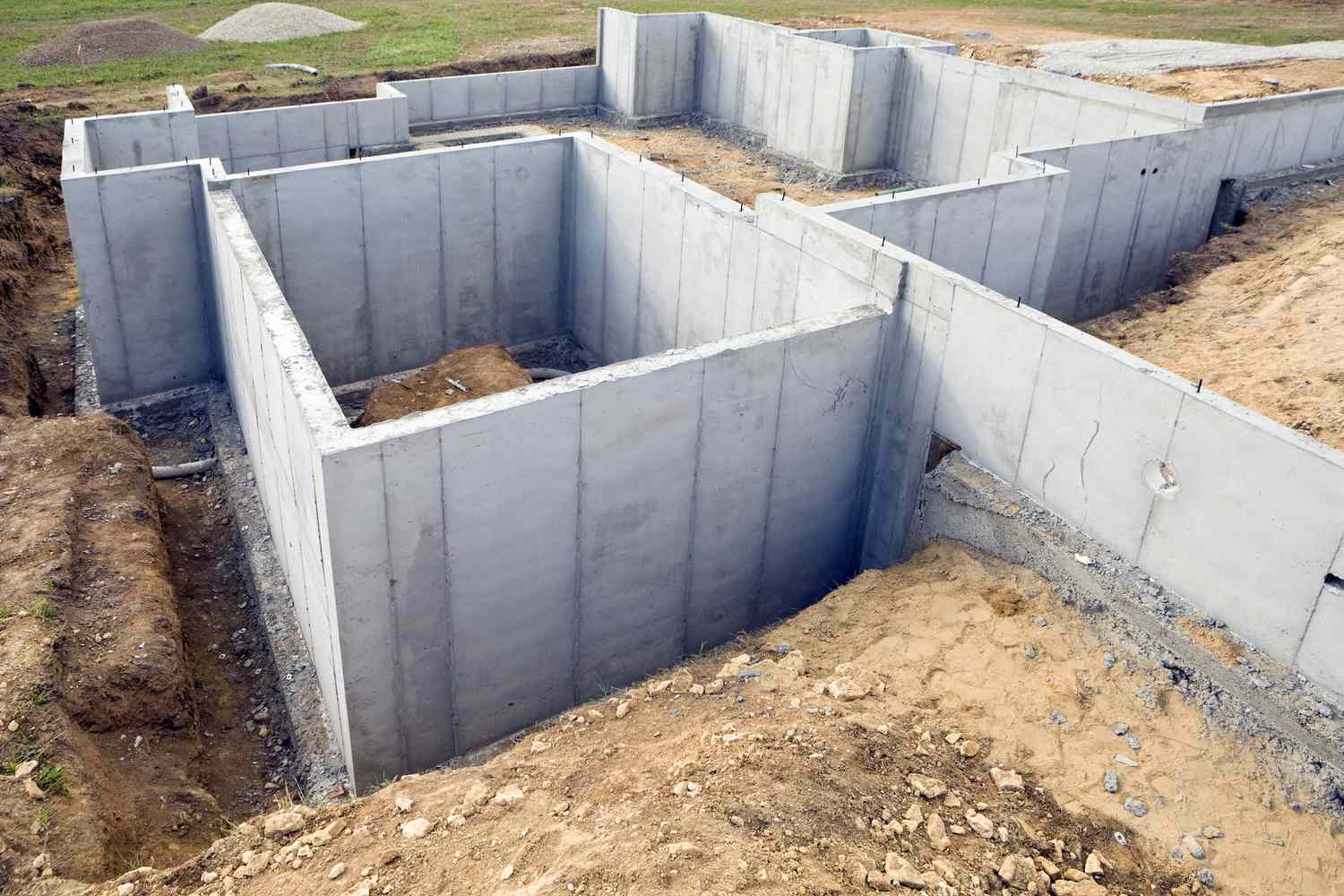
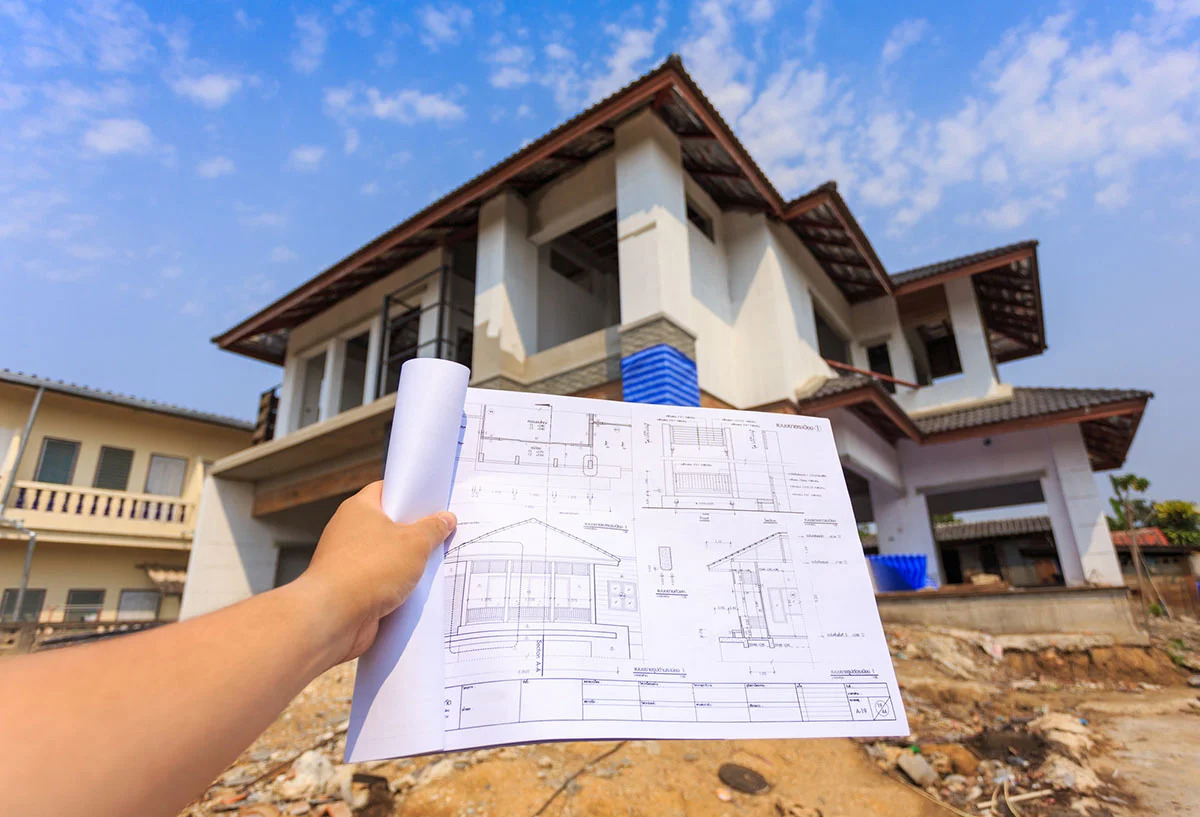

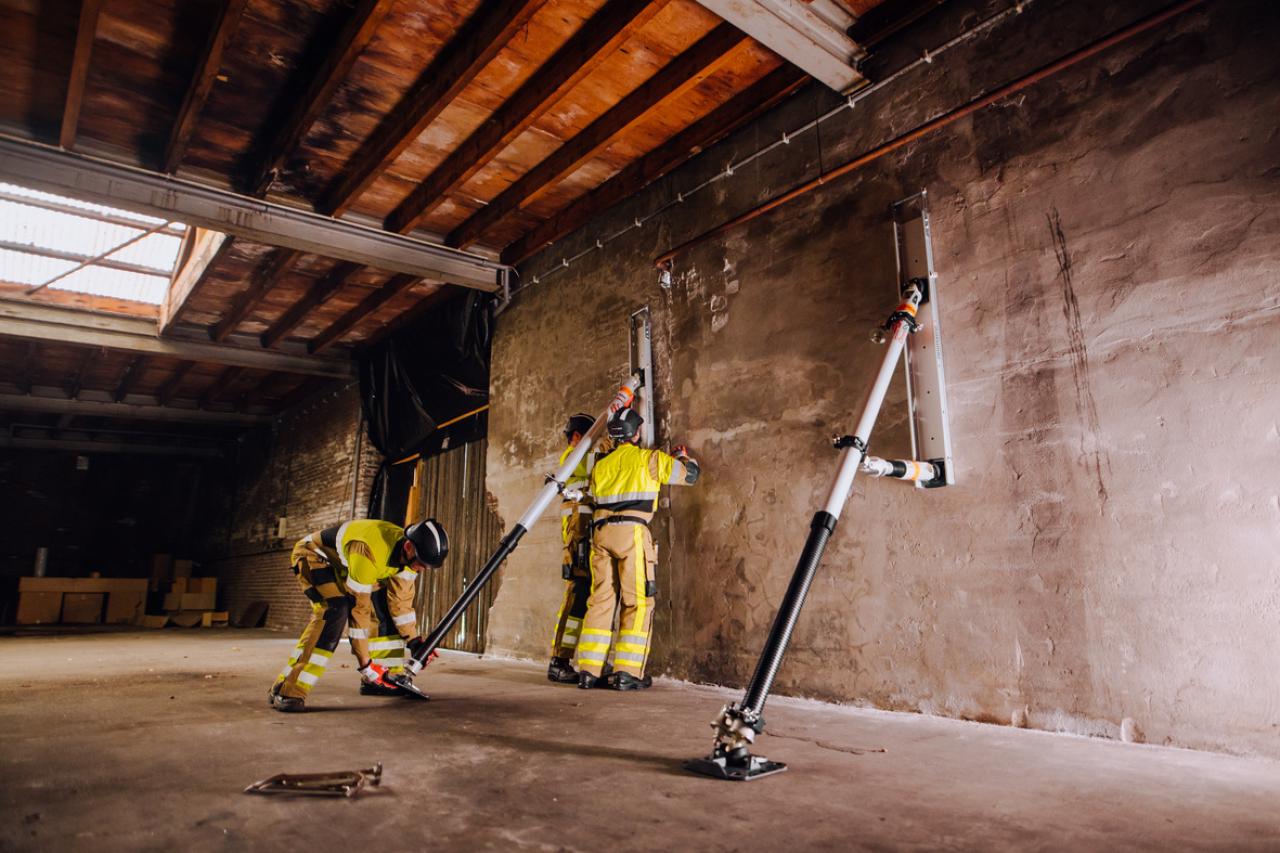




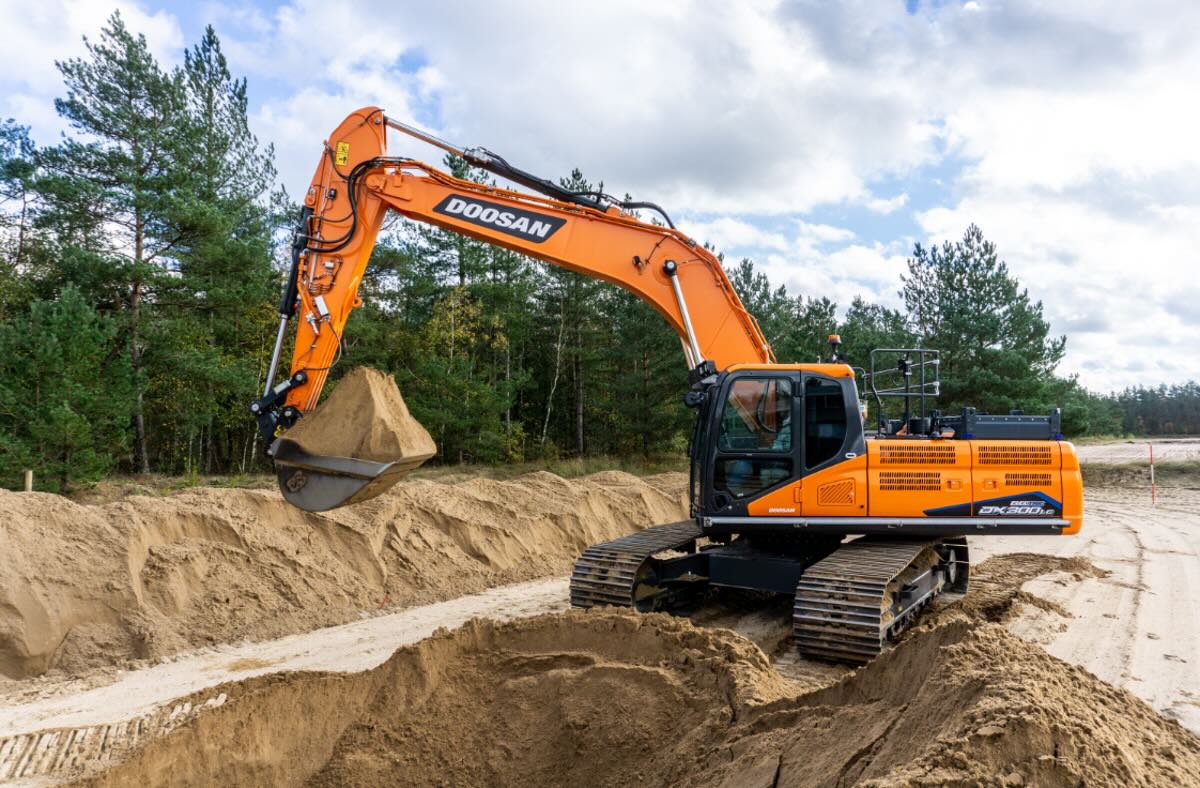

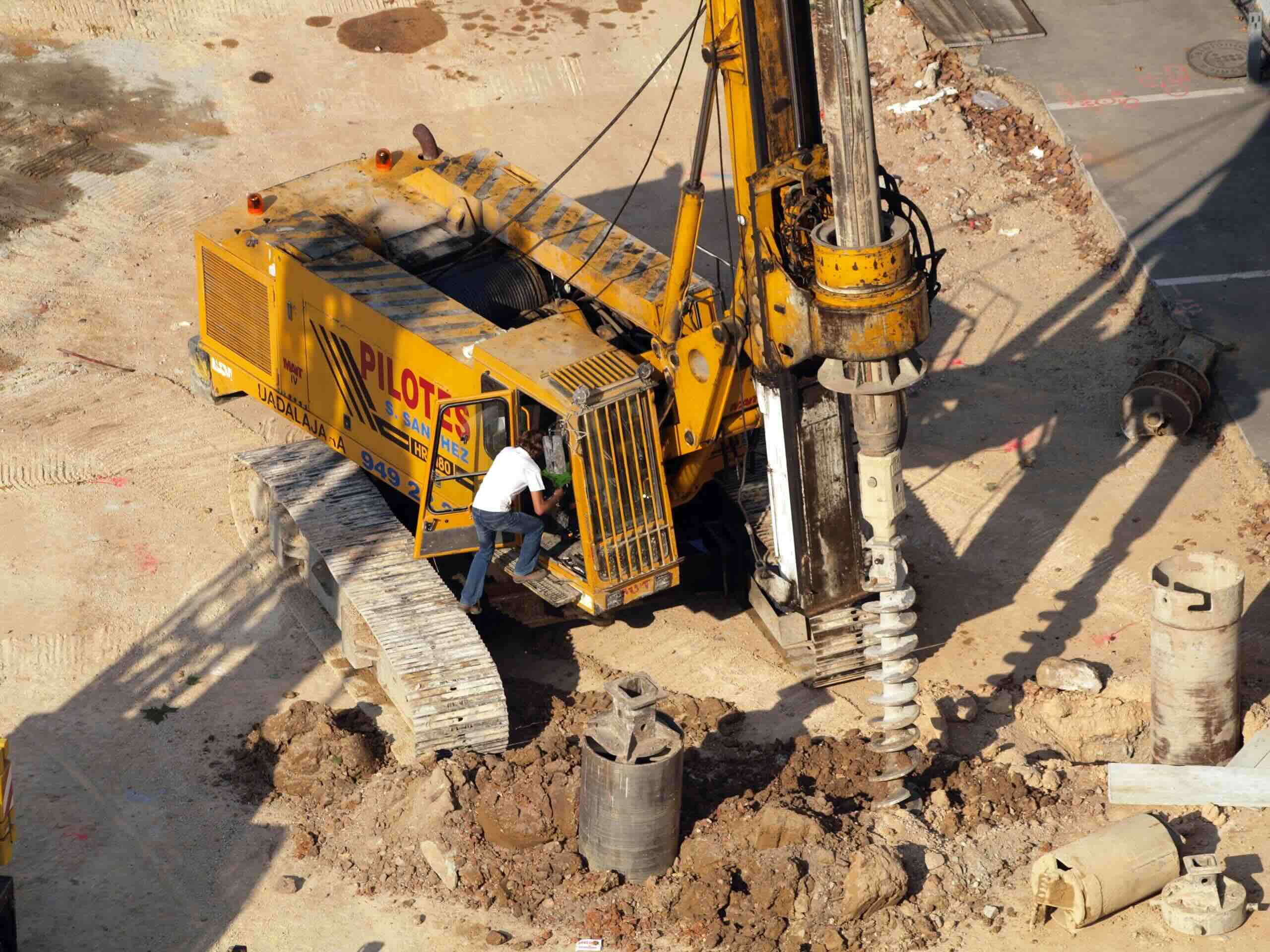
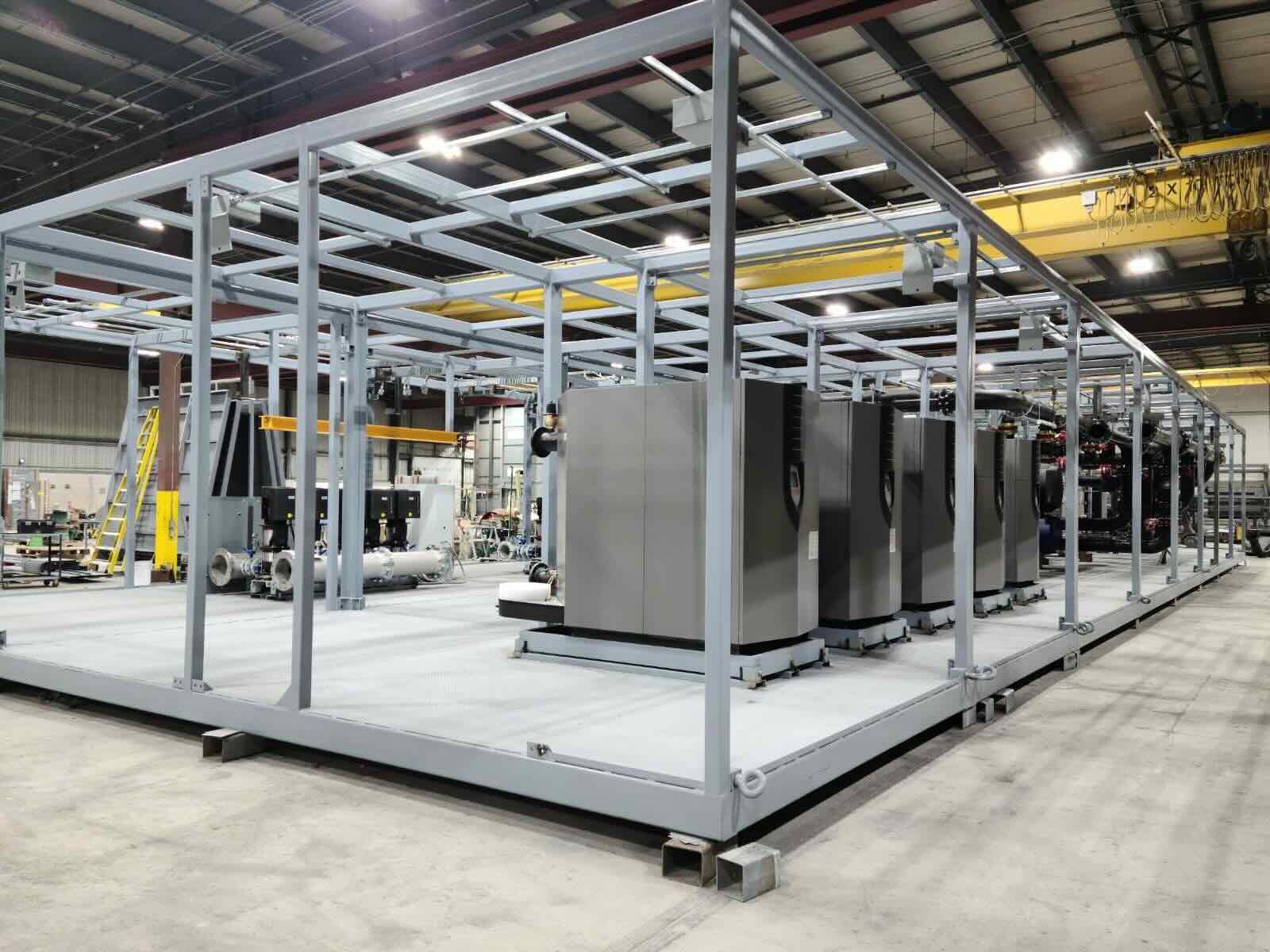

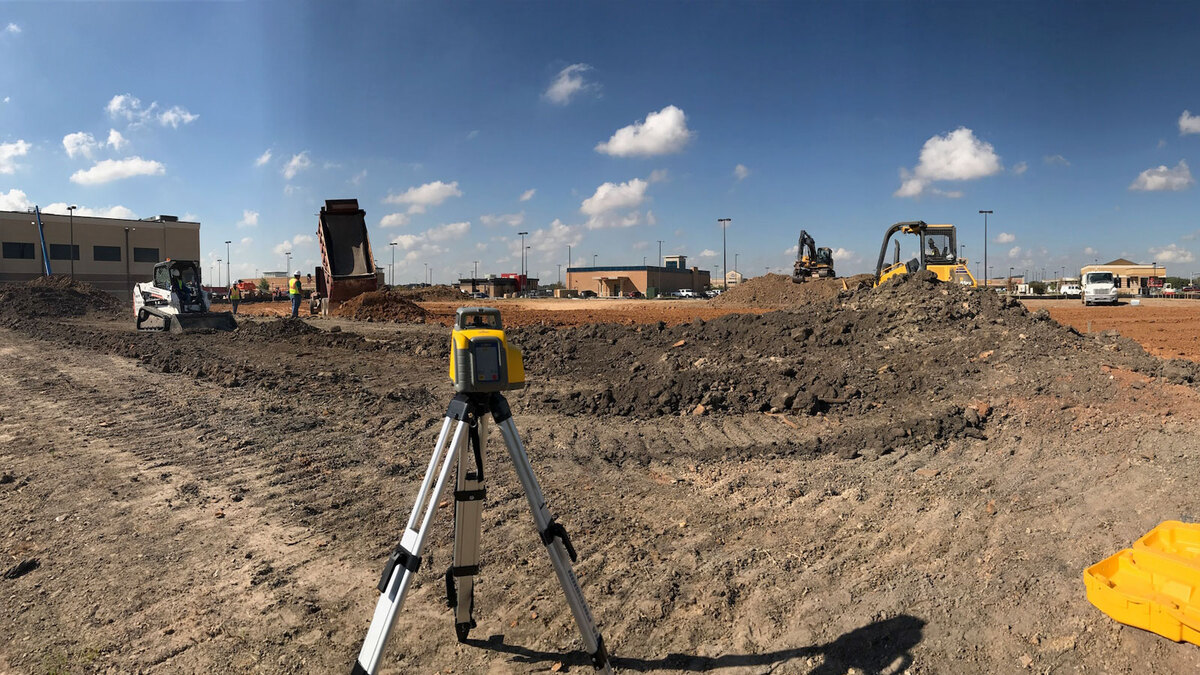

0 thoughts on “What Is An Expeditor In Construction”